The Catalonia-Lebanon Association has traveled to the Middle East country to monitor the projects being implemented on the ground.
Many organizations, especially those that carry out international initiatives, take advantage of the summer to travel on the ground and visit the projects they have underway in the countries where they work. This is the case of the Catalonia-Lebanon Association (ACL), which last August sent a delegation to the Middle Eastern country to follow up on how the association's various ongoing projects are developing .
"The general impression that we took away from the projects being carried out in Lebanon was very good, and I would like to highlight in particular the strong roots and implementation that all of them have in the territories and localities where they are being implemented", assures Núria Calvo, member of the ACL delegation that visited different regions of the country where the organization's initiatives are present.
Barja, Nabatieh, Ansar and Halba were the destinations where ACL representatives had the opportunity to see in situ how the projects, mostly of a socio-health and cultural nature, that the association is taking forward, are evolving.
The visit has taken place at a turbulent time for Lebanon, immersed in a deep political, social and economic crisis that has multiple edges and comes from afar, and has been aggravated by the effects of the pandemic. The impact of the recession is growing on the Lebanese population, which has enormous difficulties accessing basic supplies, healthcare or their savings, among others; largely due to the corruption of the ruling class and the absolute lack of public policies.
"Everyone we've spoken to has told us that they don't remember the country in a worse situation than the current one", summarizes Núria Calvo in conversation with Xarxanet.
Monitoring of projects under the guidance of the Lebanese People's Aid
During the visit to Lebanon, the Catalan delegation was accompanied by Secors Populaire Libanais (SPL), one of the local partner organizations of the ACL, with whom a collaborative relationship has been forged that goes back years back. This democratic and popular organization has more than half a century of experience in defending human rights in the country.
With implementation and projects all over Lebanon, Calvo also emphasizes that it is a secular entity: "This is very important because there everything is structured around confessionalism, religion has a lot of weight and occupies many plots of power, and in this context it is relevant to work with a secular organization, which has an unequivocal commitment to the defense of the human rights of all people, regardless of their religion or origin".
The delegation's first stop was in the town of Barja, south of Beirut, where the ACL representatives were able to meet first-hand the women who have attended computer and sewing workshops as part of the training project that takes place at the SPL school. They were able to check the knowledge acquired by the students and see some of the clothes they have made.
Beyond the training, the program includes fun and sports activities, as well as an awareness-raising task on women's rights. "We seek the empowerment of women through training, aimed at acquiring occupational skills", adds Calvo.
In Ansar, a town located in the south of the country, the ACL visited the socio-health center of the SPL, a kind of Primary Care Center where it met with the center's management and medical team, as well as with the Construction Association for Social Care Solidarity (ACSAS), also involved in the project. They talked about how the initiative is progressing and the awareness work that is being done there, focused on issues such as anti-personnel mines, the rights of people with functional diversity, gender-based violence or forced marriages.
Without leaving the south of the country, the delegation's next stop was in Nabatieh, where it approached the town's hospital, rehabilitated by the SPL. It is a particularly important piece of equipment, historic in the region, which in recent years has made a qualitative leap and has been modernized, which has made it possible to expand the range of services it offers. The remodeling of the operating theater and the start-up of the gynecology and paediatrics areas are good examples.
At the Nabatieh hospital, the Catalan delegation met with people from the center's management, who thanked the impetus given by the contribution of Catalan cooperation, which includes the ACL, but also the ACSAR Foundation and the Catalan Development Cooperation Agency.
"We resist to provide a quality service to the population", said Mohamed Mehdi, president of the center's administrative council, at the meeting with the Catalan delegation. It is not easy, given the crisis situation the country is experiencing, as Núria Calvo states: "The hospital is in danger because of all the problems in Lebanon, and it is particularly important that the center continues to be financed by a secular entity and thus guarantee the universal right to health of the entire population, it is about saving these services with a public vocation.
The trip ended in Halba, in the Akkar region, with a visit to a socio-health center dedicated to serving the refugee population, the majority from Syria, and vulnerable people in the area. The delegation also stopped at the House of Music of the SPL (Bayt El.Musiqa), which aims to promote social cohesion and inclusion through musical education for children.
Calvo and the rest of the expedition were able to enjoy a demonstration of the musical talent of the students, who focus their learning on three major musical branches: Lebanese folk, Arabic and Western classical music.
Asserting the rights of a population hit by a serious crisis
Many of these projects that the ACL helps to advance are framed in access to the right to health and are always approached with a gender perspective, with special attention to the right to sexual and reproductive health, which today It remains a taboo subject in Lebanon, explains Calvo.
In addition, awareness is one of the important parts that is present in all projects and defines the work of the ACL. "It is not just an assistance issue, but we attach great importance to the awareness and empowerment of people with rights, and also in order to increase the commitment of public administrations and authorities in respect of the rights of the population", emphasizes the ACL member, who places particular emphasis on the fact that the projects take root wherever they are executed.
All of this becomes more important considering the crisis situation that has been dragging Lebanon for years and which seems to be getting deeper and deeper, as the members of the ACL have been able to grasp. "There are serious problems with electricity, with constant cuts; educational and health services are badly damaged; there is a shortage of medicines, the pollution is very high...", enumerates Núria Calvo.
The corruption of the elites and the emptying of public policies, among others, are a burden that does not allow the country to move forward and have plunged many families into a situation of poverty, which has been accentuated by the impact of Covid-19 . "What many Lebanese people we spoke to say is that the State does not exist there, there is not a minimum of services, such as garbage collection, to cite an example, it is a critical situation", concludes Calvo.
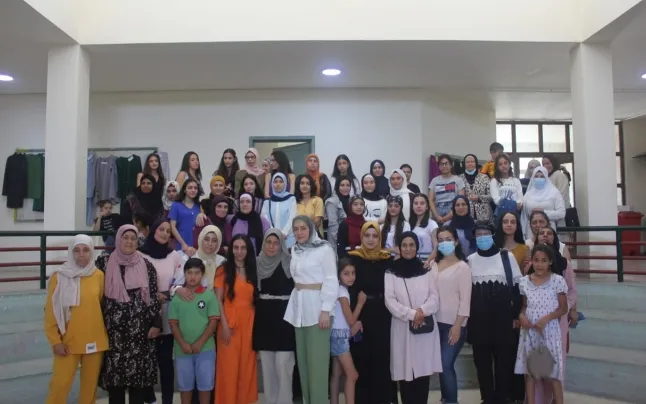
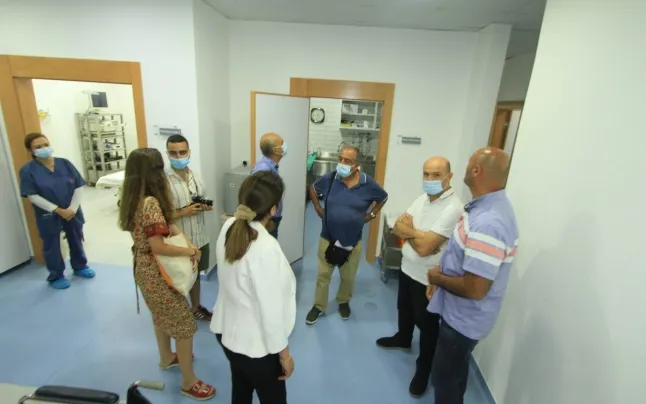
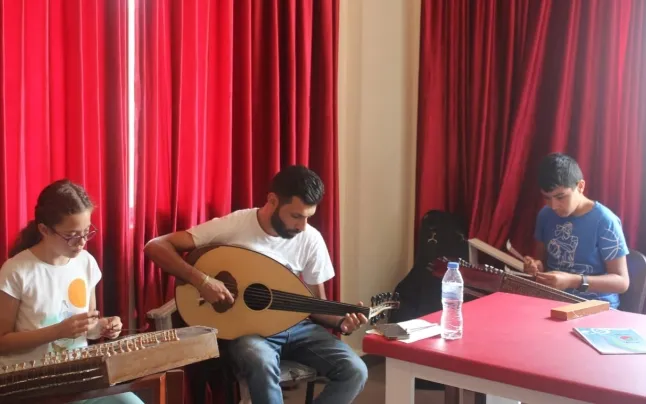


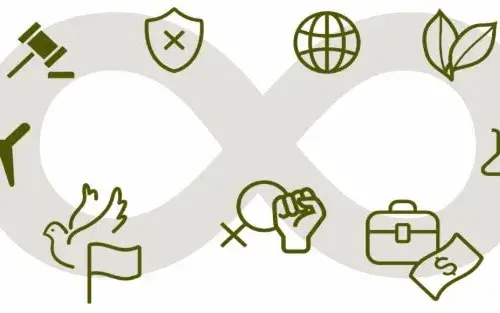

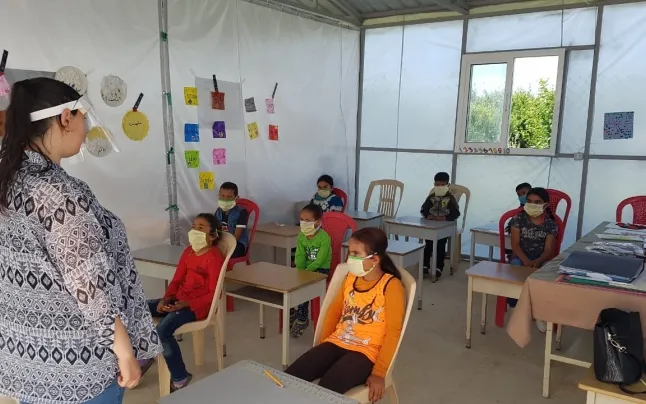
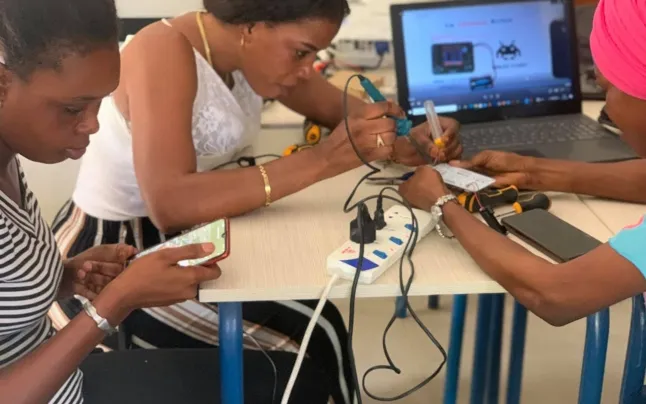
Add new comment